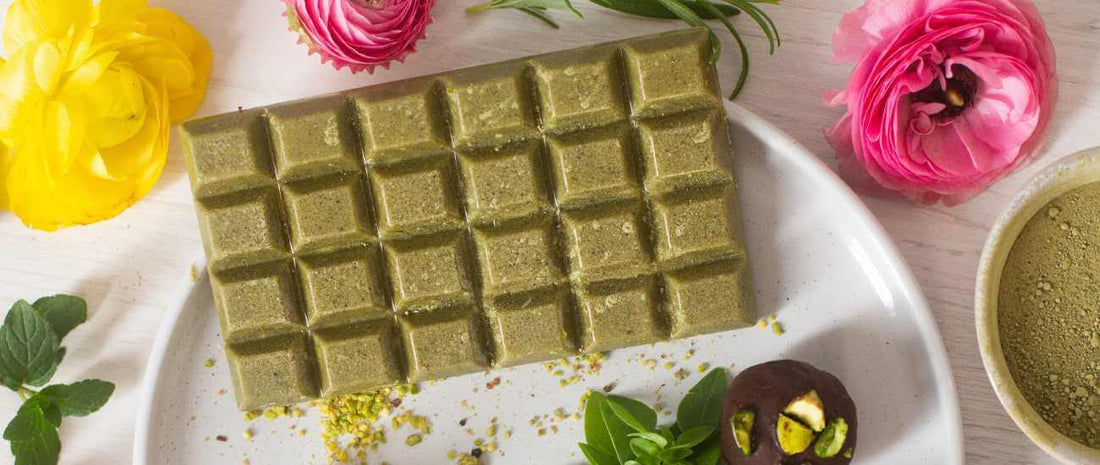
Does Matcha Expire?
Share
In the realm of green tea aficionados, the question often arises: Does matcha powder expire? This vibrant green elixir has gained popularity for its unique flavor, myriad health benefits, and ceremonial significance.
In this article, we'll explore the longevity of matcha and telltale signs that indicate if your matcha has genuinely expired.
Does Matcha Powder Expire?
Matcha green tea powder doesn't expire, but it does undergo changes over time that affect its flavor, aroma, and nutritional profile. Unlike other perishable goods, matcha's shelf life is remarkably long. However, its peak freshness is crucial for a delightful tea-drinking experience.
What Makes Matcha Go Bad Over Time?
Matcha deteriorates due to several factors. The main causes of this condition are exposure to air, light, moisture, and heat. The vibrant green hue of matcha is due to chlorophyll, which is sensitive to light and can lead to discoloration. Oxidation, triggered by air and moisture, is another enemy, causing the tea to lose its freshness and vibrant taste.
Is it Safe to Drink Expired Matcha?
While matcha green tea powder does not expire, it can become stale or lose its original quality. Consuming expired matcha won't necessarily harm you, but the taste and health benefits may be compromised. In the event that the matcha has an off-putting odor or has changed color significantly, err on the side of caution and discard it.
How Long After Opening Does Matcha Go Bad?
Once you crack open that tin of matcha goodness, the countdown begins. The clock is ticking due to increased exposure to air and moisture. Matcha should be stored in an airtight container away from direct sunlight and moisture. Thus, its shelf life will be extended, and it will retain its vibrant character.
Learn How to Tell If Your Matcha Has Gone Bad
A keen eye and a discerning palate are required to spot the signs of aging in matcha.
Here are five ways to test and tell if your matcha has gone bad:
1. Color Check
Observe the color of your matcha. Fresh matcha should exhibit a bright, vibrant green hue. If it appears dull or has shifted towards a yellowish tone, it's an indication that the tea has lost its luster.
2. Aroma Assessment
Take a moment to inhale the aroma of your matcha. A stale or musty scent suggests that the tea has been exposed to unfavorable conditions. Fresh matcha exudes a grassy, slightly sweet fragrance.
3. Texture Test
Rub a small amount of matcha between your fingers. The texture should be silky smooth. If you detect any clumps or a gritty texture, it may signify moisture intrusion or improper storage.
4. Taste Trial
The most telling sign lies in the taste. Fresh matcha should deliver a harmonious blend of umami and sweetness. If the flavor is flat, bitter, or lacks complexity, your matcha may have passed its prime.
5. Expiration Date Examination
While matcha doesn't necessarily expire, checking for a production or expiration date on the packaging is essential. Opt for matcha with a recent production date to ensure optimal freshness. If you want to know more about Matcha, visit Leigh Leaf.
What Should I Do With Matcha That Has Gone Bad or Stale?
If your matcha has lost its luster and failed the sensory tests, don't despair. There are alternative ways to repurpose it rather than consigning it to the trash bin. Consider using stale matcha in baking, smoothies, or even incorporating it into facial masks for a rejuvenating skincare routine.
What is a Non-Negotiable Sign I Should Throw Out My Old Matcha?
When it comes to expired matcha, trust your instincts. If the tea looks, smells, or tastes off, it's time to bid it farewell. Matcha is a celebration of flavors and aromas, and compromising on quality may lead to a subpar tea experience.
The Bottom Line: Look for a Fresh Production Date When Buying Matcha
Ensuring the longevity of your matcha starts with the initial purchase. When buying matcha green tea powder, prioritize products with a recent production date. Fresh matcha not only guarantees a superior taste but also maximizes the potential health benefits associated with this cherished beverage.
In conclusion, while matcha green tea powder does not expire in the traditional sense, its quality can diminish over time. By understanding the factors that contribute to matcha aging and employing the suggested tests, you can savor the whole experience of this exquisite tea. So, the next time you dip your whisk into a bowl of matcha, remember to appreciate its vibrancy and savor the moment. Happy tea drinking!
Related Article:



